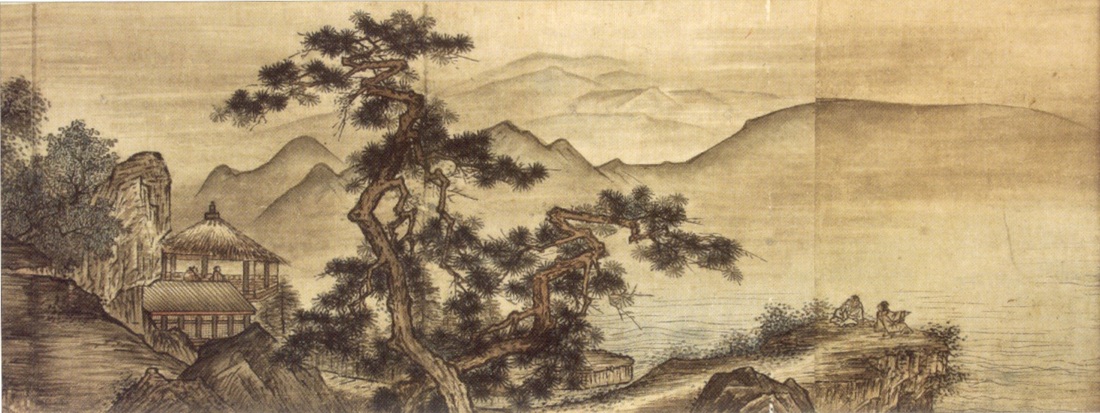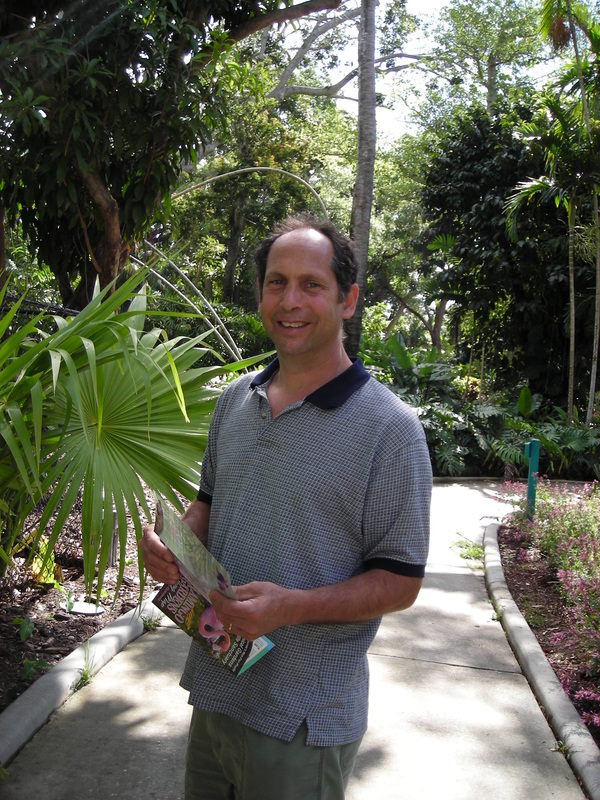
for those who have no preferences.
When love and hate are both absent
everything becomes clear and undisguised.
Make the smallest distinction, however,
and heaven and earth are set infinitely apart.
If you wish to see the truth
then hold no opinions for or against anything.
To set up what you like against what you dislike
is the disease of the mind.
When the deep meaning of things is not understood,
the mind’s essential peace is disturbed to no avail.
These are the first two stanzas of the Hsin Hsin Ming a poem by Seng Tsan the Third Patriarch of Zen Buddhism in China. It is difficult to know when this poem was written, probably around 600CE Wikipedia says that Seng Tsan died in 606. As the Third Patriarch Seng Tsan was the third holder of a lineage of Buddhism brought to China from India by Bodhidharma in the early 500s. Bodhidharma is considered the First Patriarch but he was a holder of a lineage that went back to the Buddha. This lineage called Chan in China, Zen in Japan and now Zen in most of the rest of the world was different from the other forms of Buddhism found in China when Bodhidharma arrived in its almost complete reliance upon meditation and not doctrine or philosophy, or devotional practices. It is still unique today in this way though I am sure a practitioner of another form of Buddhism would argue that they also put a lot of time on the cushion. When we read this poem/essay by the Third Patriarch we must understand that it is giving instruction in the psychological disposition of meditation whether on the cushion or not.
First we should know that Hsin Hsin Ming translates as Faith in Mind. This title is the least clear thing in the whole poem. What is this Mind? Is it our individual mind which is continually spinning out all sorts of thoughts, or is it some other version of mind which we discover in meditation? I am going to say outright that it is not that first version of mind which is filled with thoughts of likes and dislikes. On the other hand this poem is a manual for experiencing that other version of Mind.
At the very beginning of the Hsin Hsin Ming we are told that this poem is about The Great Way. This is not a Buddhist term, in fact no where in this poem is there a mention of Buddhism nor is there more then a hint that this poem is about Buddhist experience and yet it is very much about Buddhist experience. The Buddhist experience described in the poem is not specifically Buddhist only that the practice of Buddhism and Zen can lead to this experience. By using the words The Great Way Seng Tsan is using the language of Taoism the native philosophy and religion of China, and saying that The Great Way of Taoism in essence is no different then the way of Zen and Buddhism.
I think it is important that we have a bit of understanding about Taoism and Chinese philosophy. In Sixth Century China there were and had been for many centuries, two primary philosophic strains. Confucianism which is a social philosophy and Taoism which was a philosophy on how the individual in the already complex society of China can return to harmony with Nature. Tao of Taoism translates as The Way and refers to both the way of Nature and the way to return to harmony with Nature. So right from the beginning Seng Tsan is telling his readers that: This is how to return to harmony with Nature. This seems like a reformulation of Buddhism. The Buddhism of India did not talk about harmony with nature but just because the language is different this does not mean that the experiential essence is different. Seng Tsan recognized that the experiential essence of Zen needed to be represented in a way that the Chinese would relate to. And in many ways this Chinese common sence way of thinking of Buddhism is better then the magical, religious, and philosophical language, of Indian Buddhism because in essence the enlightenment experience is an experience of harmony with nature in the broadest sense, with the whole Universe.
Right there at the beginning of Buddhism when Shakyamuni pronounced that people did not have an atman (soul), that everything is in constant change, and all things result from causes and conditions, he was saying that we are fully natural creatures not separated from the natural world by any sort of specialness, endowed upon us by God or the gods, like a soul, and that we are products of and function through the same processes that all of the natural world functions. This sounds like harmony with nature. Seng Tsan was aligning Zen Buddhism with Taoism giving Zen a Chinese context.
So how do we realize our harmony with nature? The first step is not to judge anything and maintain a clear mind that can see the world with out discrimination and thereby without delusion or illusion. Start by ending thoughts of like and dislike, love and hate. Take emotion out of the equation. When you think about it this is not an easy step. It is like stepping off a cliff. No it is more then that. It is like climbing up a great mountain so that you can step off a cliff and die. Why would anyone want to do that? Are not emotions the essence of our life. We are emotional creatures.
Yes we are emotional creatures but our emotions service our delusions as well as also create some of them. By no means does Zem turn us into emotionless automatons but some how if we are to see through our delusions then we have to turn off our normal way of thinking emotions and all. This is what zazen is all about. This is what we have to cultivate. The other day in one of the sitting groups I lead I talked about why the Soto Zen practitioners face a wall as they sit zazen while the Rinzi practitioners face the other way. The story goes that Bodhidharma sat for eight years facing a wall in a cave in China. So the Soto people quite literally take that to heart and face a wall when they sit. On the other hand this story that Bodhidharma sat facing a wall is also understood metaphorically with the "wall" representing the state of deep zazen. The state of deep zazen is likened to a wall because it has that smooth quality that most walls have. In other words our normal minds are highly textured with thoughts and emotions but the state of deep zazen is smooth without emotion or thought. The thing is, is that when you sit this way, and it takes years of practice before this is possible, the mind is clear allowing for a whole new perception of the world and something else also happens, a deep energizing of the nervous system which somehow can all work together to produce insight, transformation, enlightenment.
So when we practice zazen we are practicing drooping our emotions. We are also practicing dropping our thoughts. Thought and emotion generally work together. Whenever thought or emotion arises during zazen the practice is to drop them and return to the focus of concentration used. Over and over this is done until the mind is clear. open for change. And then maybe when we return to thought and emotion everything has changed.
When the deep meaning of things is not understood,
the mind’s essential peace is disturbed to no avail.
In Buddhism we say we suffer because of ignorance. This ignorance is an ignorance of the essential nature of the Universe and our role as humans in it. Of course we humans are born ignorant. We have been born ignorant since time immemorial. Nature though did endow us with with certain attributes among which is fear and a way to recognize the dangerous situations which activate this fear. This translates into a fear of death even if as a young child we don't understand death. But eventually we all learn about death and it's inevitability. and this combined with our fear creates an underlying existential suffering. The role of religion has always been to assuage this underling suffering with story and faith and ceremony. The problem with the traditional religions has always been an element of irrationality. A faith in something beyond experience, and magical stories that sow seeds of doubt which is often another source of suffering.
If we suffer because of our ignorance then there must be some truth, some insight which will relieve us of our existential suffering. In the Zen schools say that we must search within for this truth, that we all have within us the wisdom to recognize this essential truth. This essential truth is The Way. It is just that this truth lacks power in explanation. It must be deeply experienced.

 RSS Feed
RSS Feed